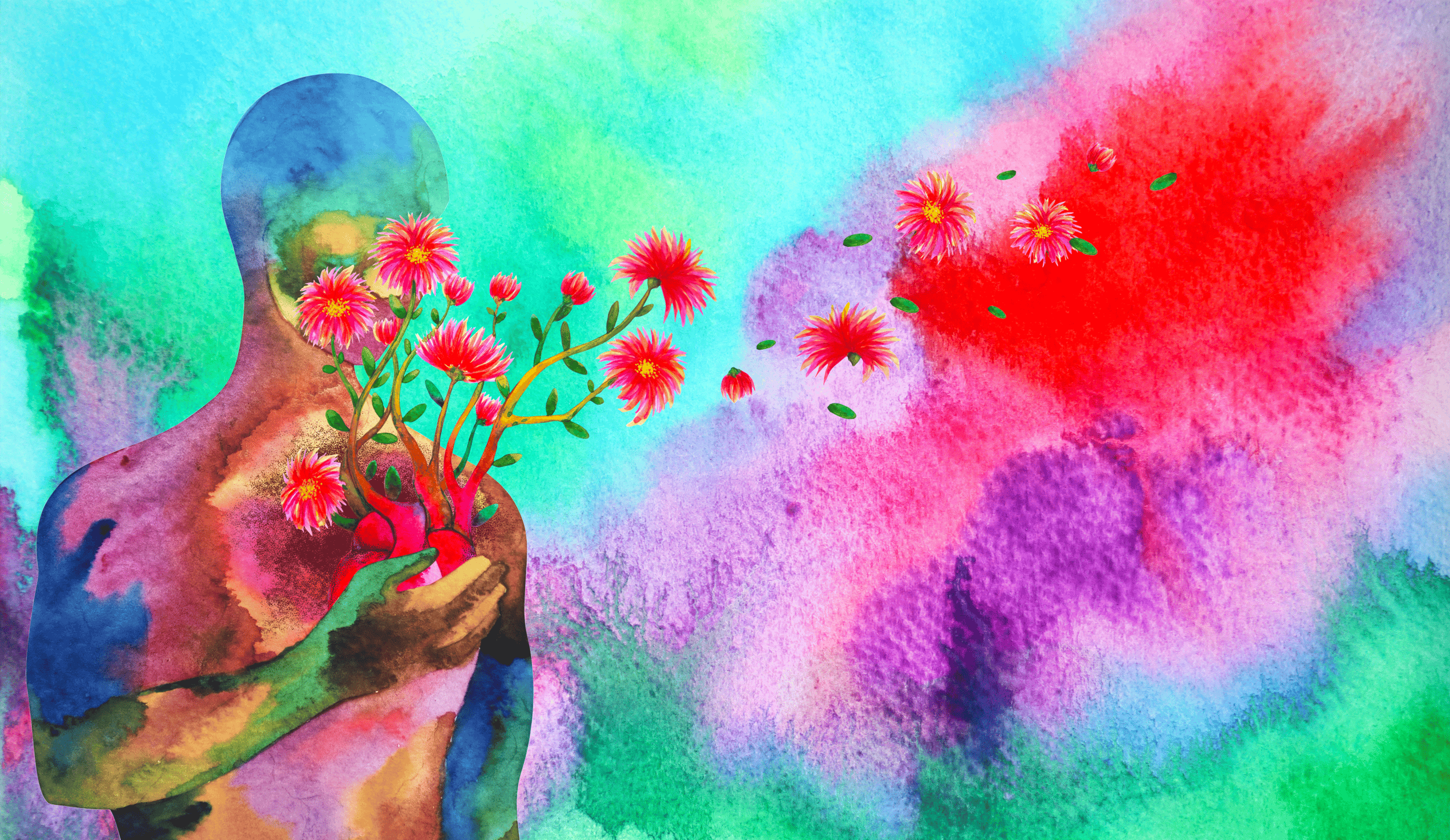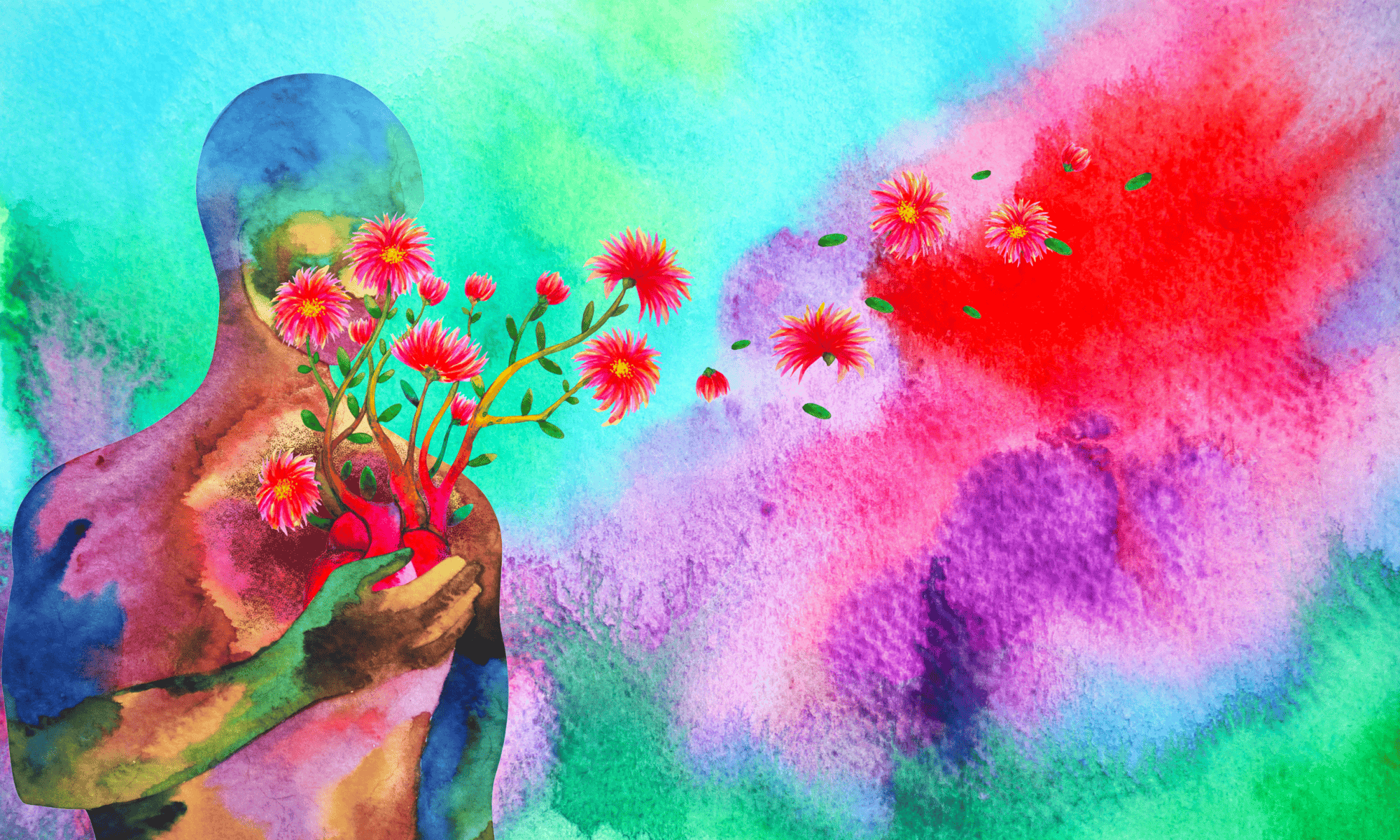
How To Be Loving, Caring, And Appropriately Intimate With Your Coaching Clients
Being a loving and caring coach is an art that strikes a balance between intimacy and professionalism. You must simultaneously be able to break down barriers and get to know your clients well and be able to maintain a level of distance so that you can appropriately and objectively guide them. To be too removed from them will cause a lack of trust and effectiveness in your advice, while to be too intimate can cloud your judgment and make it difficult to apply the right level of force and challenge.
As an intuitive life and business coach, I’ve had a long time to contemplate just how intimate and loving I should be during sessions. In the early days, it took time to figure out the spectrum of intimacy and what techniques were most effective. Now, I’d like to pass on what I’ve learned to you so that you can begin building healthy relationships with your own coaching clients.
First, Learn To Be Loving and Forgiving of Yourself
The first part of learning how to effectively participate in any social interaction with another person is to apply the situation to yourself. If you were in your client’s shoes, how would you want to be treated by a coach?
This is a wonderful exercise because you should begin building a daily routine, if you haven’t already, that includes meditation to clear your energy for the day and practice self-love and forgiveness. I swear by one of my favorite prayers called the Ho’Oponopono prayer, which is a Hawaiian tradition of bringing things back into balance through forgiveness.
There are many other prayers, mantras, rituals, and sutras that you can add to your routine to prepare for your clients. If you’re interested in this Hawaiian self-forgiveness prayer, however, try this:
Find silence, breathe, and maybe close your eyes to turn inward or look into a mirror to really confront yourself. Then, repeat this phrase:
“I’M SORRY, PLEASE FORGIVE ME, THANK YOU, I LOVE YOU”
You can repeat this prayer a hundred times a day if you’d like. I find it is so cleansing, relieving, and helpful for getting through the day. By emptying yourself of any regrets, hurts, and guilts, you can appropriately show up for your clients. You won’t project your feelings and personal issues onto them. Instead, you can be there for them, be a sounding board, and take on each new challenge with a blank slate.
Isn’t that how you’d want to be treated?
Deep forgiveness can come through divination tools like The Shankara Oracle.
Express Appreciation and Gratitude to Your Old and New Coaching Clients
Once you’re properly loving yourself, you can extend that light to others. Every new coaching client is a gift, and they are gifting you further by allowing you into their lives intimately and asking for help. Acknowledging that you need help and seeking the right source for guidance is a huge deal, so you should make sure your coaching clients get the appreciation and support they deserve.
Make sure that at the start of your journey together, that appreciation is expressed. Express that gratitude and encouragement at the beginning of every session as well because they’ve chosen to come back and keep going!
Everyone expresses appreciation differently, so don’t be scared to get creative and keep it unique to you. Regardless of how you choose to show this gratitude, make sure it is genuine. Connect with your coaching client, make them feel seen and heard, and embrace them with your light and love.
I’m so proud of you for taking this path for yourself.
I’m so grateful you’ve chosen me to go on this journey with you.
Thank you for continuing to trust me with your goals.
The more appreciated your coaching client feels, the more they’ll begin to trust you, break down walls, and in turn, move forward in their growth.
Create a Space Devoid of Judgement
Cleansing yourself of guilt, hurt, and regrets is such a good idea when coaching because it allows you to extend forgiveness and acceptance to your clients. Your coaching clients have come to you for help because they know they need it – they don’t need to be reminded or berated for mistakes or flaws. In order for them to move forward and make progress, they need a fully comfortable space free of judgment.
To best serve your coaching clients, you’ll need to get to know them very well and learn the intricate webs of their lives. The only way a client will let you in fully to every detail and nuance is if you make them feel that they can say and do anything without being judged. They need to feel like you are a safe confidant is who only there to help pull out of jams, fix errors, and find the best way forward.
In other words, you are to your coaching clients what doctors are for the injured and sick. You are there as a professional who just needs to know as much information as possible in order to make the correct diagnosis and create a treatment plan – not to make the client feel bad for how they got in that tough space or make them feel that they’ve caused the problems they now find themselves dealing with. When a coaching client truly feels comfortable with you, they’ll open up fully, tell you everything you need to know, and be much more willing to participate in the exercises you’ve suggested with full enthusiasm and trust.
Patience is a Virtue
I have no doubt in my mind that you’ve heard the phrase, “patience is a virtue.” There are two sides to this: patience is so very important in every aspect of your life, but it is also a skill that must be practiced and honed, and it is difficult to maintain.
Coaching clients have come to you with a list of problems, and you are tasked with helping guide them to the other side. When you have many clients, you’ll have a wide range of clients. Some might have difficult issues yet have very fast journeys to realization and reach success quickly. Others might have seemingly minor issues, but they struggle every step of the way. Some coaching clients might just not be working out at all. You need to exercise patience in every scenario.
Frequently remind yourself that you should always be seeing things from their point of view. How would you want your coach to treat you if you had some very deep-seated, complex issues? How would you want your coach to act if you were struggling for a long time on something that seemed so simple for others? What about if you were stuck and every session you attended made you lose more faith in your abilities?
As a coach, you might feel frustrated, but remember that you’re on the other side of things. How much more frustrated and lost must your client feel when these issues are directly affecting them personally? It’s your job to help show them the light at the end of the tunnel, and maybe every pivot to try new techniques and stay flexible rather than give up on them.
Stay Present with Your Coaching Clients
Many times, I have coaching clients who come to me after everyone else in their lives, whether personal or professional or both, have heard about their issues thousands of times and don’t want to be involved anymore or have given up on them. Maybe they feel that no one else is there to support them, love them, and listen to them. You might be all they have.
Enter every new client journey and session with the attitude that you are all that the client has. You’re the only resource to help them reach their goals, and you’re the only person that’s supporting them, loving them, and caring for them every step of the way. With this attitude, you’ll learn to stay fully present for each client. You’ll listen to every word and put every ounce of your effort and care into their guidance.
The client needs to feel that their journey is the most important thing on your plate and that you are completely invested in their success! Always respond to their needs in a timely and loving manner.
REMEMBER!
You are a beautiful Living Being filled with light and love, born from stardust. You are unlimited potential in every direction. With a focus on discipline, virtue, and your own goodness, you can become as expanded and liberated as you desire.
Pray for others and the Universe prays for us.
Meet Paul Wagner
Paul Wagner (Shri Krishna Kalesh) is an intuitive mystic, clairvoyant reader, and a loving life & business coach. He created “THE PERSONALITY CARDS,” a powerful Oracle-Tarot deck that’s helpful in life, love, and relationships.
He created The Shankara Oracle, a profound divination tool that includes 18 gemstones, a lavishly designed divination board, and over 300 penetrative oracle cards – all to help you heal to your core and illuminate your Being.
Paul studied with Lakota elders in the Pecos Wilderness, who nurtured his empathic abilities and taught him the sacred rituals. He has lived at ashrams with enlightened masters, including Amma, the Hugging Saint, for whom he’s delivered keynotes at Her worldwide events.
Paul tours the world lecturing on spiritual liberation. He lovingly offers intuitive readings, inspirational coaching, and illuminating courses to help others with self-discovery, decision-making, healing, and forgiveness. Book a session with Paul: HERE





